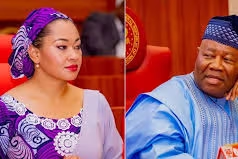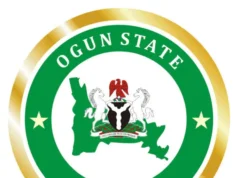
Cape Town — In a moment that many observers say could mark a turning point in African engagement with artificial intelligence (AI), the University of Cape Town (UCT) has officially launched its African Hub for AI Safety, Peace, and Security. The initiative signals a deliberate attempt to centre African perspectives in global AI debates, emphasising the continent’s distinct challenges and aspirations.
At the heart of the launch, which drew distinguished academics, policy-makers, and international partners, is a vision: to build capacity, conduct research, and promote policies that ensure AI systems uplift peace and security across African societies — rather than exacerbate vulnerabilities.

Table of Contents
Anchoring Africa’s Voice in Global AI Discourse
Associate Professor Jonathan Shock, interim director of the UCT AI Initiative, captured the tone of urgency at the opening ceremony. “This hub is about more than science — it’s about societal impact,” he said. His words echoed throughout the lecture hall, as he articulated the hub’s mission: to guarantee that African priorities are not merely commentaries in global AI debates but foundational building blocks.
UCT’s Vice-Chancellor, Professor Mosa Moshabela, offered a more expansive framing. He described the launch as not just symbolic but a call to stewardship. “We are not only launching a hub; we are affirming our role in leading Africa’s contribution to the future of AI safety,” he said. He added that at UCT, the work lies at the intersection of research, pedagogy, and societal engagement; this new hub is meant to breathe life into that triad.
By placing the hub at UCT, the university is making a statement: Africa’s voice and technical talent must be central to designing AI systems, not sidelined by external developers and funders. In Moshabela’s words, “Africa’s voice matters, Africa’s knowledge matters, and its future in AI must be secured on its own terms.”
Several dignitaries at the launch underscored this sentiment. Emily Middleton, representing the UK Department of Science, Innovation and Technology, noted that although Africa is disproportionately exposed to AI-related risks, its voices remain underrepresented in global decision-making. She highlighted challenges like the digital divide, the threat of tech-enabled gender-based violence, and biases in training data that fail to reflect African languages, cultures, and priorities.
From Canada, Maggie Gorman Vélez of the International Development Research Centre spoke of the hub’s role in a broader global network. The UCT hub will join 13 multidisciplinary labs worldwide under the AI for Development programme, adding Africa’s perspective into a conversation that often tilts toward Western norms.

Priorities, Challenges and Strategy
While much global AI discourse centres on existential risks — such as superintelligence or uncontrolled autonomous agents — Associate Professor Shock stressed that for Africa, the more immediate threats may lie in peace and security. He drew attention to how disinformation during elections, AI-enabled surveillance, predictive policing tools, and algorithmic bias could deepen conflict lines across nations.
He explained that the hub’s early work over the next three years will focus on research, capacity building, and influencing policy. In practice, that means collaborating with existing African networks — such as Masakhane, Deep Learning Indaba, AfriClimate AI, GRIT, and CAIR — to amplify reach and impact.
Shock offered concrete examples of AI’s potential in the service of development and peace. In agriculture, combining satellite imagery with local weather data could help smallholder farmers guard against crop losses. Health diagnostics, he noted, can be made more accessible through AI tools calibrated to African epidemiological and infrastructural realities. In education, AI-powered personalised tutoring could help bridge resource gaps. And in a democracy, systems that detect disinformation in local languages may safeguard electoral integrity.
Yet he and others at the launch recognised that technical capability is not enough. Dr Chinasa Okolo, founder of Technecultura, called for a paradigmatic shift in how AI safety is conceptualised. Too often, she argued, global AI frameworks adopt Westernised metrics and exclude lived realities of the Global South. She advocated for multilingual evaluation systems and regionally anchored infrastructure that ensures public participation in AI governance. “Mainstream AI safety has been dominated by Western-centric approaches that often exclude the lived realities of the Global South,” she said, urging the new hub to reframe orthodoxies rather than simply mirror them.
Looking ahead, Shock sketched a vision for the next five years: a vibrant network of African innovators building tools that both mitigate risk and promote peace, democracy, and sustainable development.
Africa’s AI Future: Risks, Opportunities, and the Role of the Hub
For Nigeria and the broader continent, the UCT African Hub for AI Safety, Peace, and Security may not only be a landmark institution but also a blueprint for how Africa shapes its own technological destiny.
AI in Africa carries huge promise — from boosting agribusiness yields and expanding telemedicine, to enabling smart education, climate adaptation, and more. But without careful attention to safety, inclusion, and governance, it can hasten inequality, entrench biases, enable digital surveillance, or amplify conflict.
The new hub offers a space for Africa to define those guardrails and lead policy discourse on its own terms. By centring African languages, policy priorities, cultural contexts, and ethical norms, the hub can help ensure that AI systems respect values held across diverse communities.
Moreover, by forging partnerships with regional networks and international centres, the hub can channel global funding and research infrastructure into local capacity building. With adequate support, it may help produce homegrown AI talent, reduce brain drain, and foster regional collaboration across African nations.
In practical terms, Nigeria and others may benefit from research, policy insights, training programs, and consultancy emerging from this hub. As African governments increasingly adopt AI in public services, defence, agriculture, or social welfare, having access to research grounded in African realities will be a huge advantage.
However, the hub also faces steep challenges: securing sustained funding, navigating political interference, bridging infrastructure gaps (especially in connectivity and computing power), and ensuring that its output resonates beyond academia and into policy circles and communities.
Ultimately, success will depend on whether the hub can live up to its mandate — whether African voices will shape AI governance, whether safety, equity, and peace will stay central, and whether the hub can catalyse a new era of AI with African agency.

Conclusion
The UCT launches African Hub for AI Safety, Peace, and Security is more than a headline. It is a bold step toward reimagining how Africa interfaces with the most consequential technology of our time. If Nigeria and other African nations engage fully with this hub — not just as beneficiaries, but as equal partners — it could help tilt global AI narratives in favour of inclusion, resilience, and justice.
Join Our Social Media Channels:
WhatsApp: NaijaEyes
Facebook: NaijaEyes
Twitter: NaijaEyes
Instagram: NaijaEyes
TikTok: NaijaEyes



